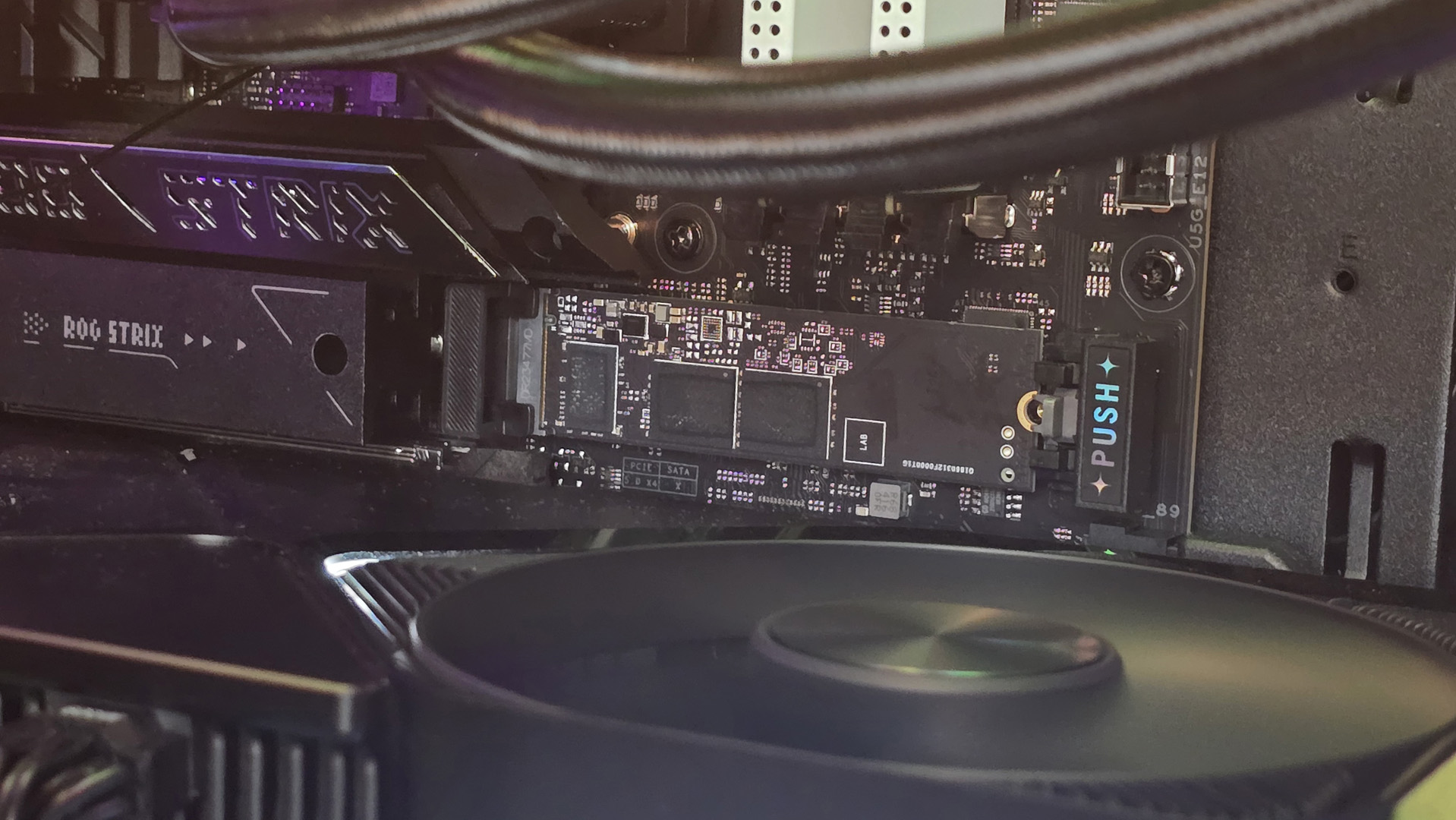Phison launches the first ever SSD controller to have built-in AI processing, along with some monstrous random data performance figures
It probably won't appear in any gaming PC. Well, not yet, at least.

Keep up to date with the most important stories and the best deals, as picked by the PC Gamer team.
You are now subscribed
Your newsletter sign-up was successful
Want to add more newsletters?

Every Friday
GamesRadar+
Your weekly update on everything you could ever want to know about the games you already love, games we know you're going to love in the near future, and tales from the communities that surround them.

Every Thursday
GTA 6 O'clock
Our special GTA 6 newsletter, with breaking news, insider info, and rumor analysis from the award-winning GTA 6 O'clock experts.

Every Friday
Knowledge
From the creators of Edge: A weekly videogame industry newsletter with analysis from expert writers, guidance from professionals, and insight into what's on the horizon.

Every Thursday
The Setup
Hardware nerds unite, sign up to our free tech newsletter for a weekly digest of the hottest new tech, the latest gadgets on the test bench, and much more.

Every Wednesday
Switch 2 Spotlight
Sign up to our new Switch 2 newsletter, where we bring you the latest talking points on Nintendo's new console each week, bring you up to date on the news, and recommend what games to play.

Every Saturday
The Watchlist
Subscribe for a weekly digest of the movie and TV news that matters, direct to your inbox. From first-look trailers, interviews, reviews and explainers, we've got you covered.

Once a month
SFX
Get sneak previews, exclusive competitions and details of special events each month!
When it comes to the world of PC gaming, a new SSD controller chip is unlikely to garner many headlines, as it's normally the solid state drives they're used in that are more newsworthy. But at this year's Computex event, SSD specialist Phison announced a new controller that is faster and more power efficient than the competition, and even has integrated AI processing to speed up…well…AI processing.
The controller in question is the rather unassumingly titled E28, and it's already picked up an award at Computex for its innovation. Manufactured on TSMC's N6 process node, Phison says the E28 sports random read/write rates of 2,600K and 3,000K IOPS, respectively.
To put those figures into perspective, the best gaming SSD, the new WD Black SN7100, only goes up to 760K and 1,200K IOPS in each case.
Even compared to Phison E31T, its best consumer-grade SSD controller, the figures are still mighty. That little chip, shown above in the Corsair MP700 Elite, can reach random read/write rates of 1,500K and 2,200 IOPS. The E28 makes it look positively slow.
Phison also claims that the E28 controller uses 15% less power than other 6 nm SSD controllers, although it doesn't specify which others it's comparing the new chip to. Either way, less power means less heat, and that's good news all around when it comes to ultra-fast storage.

Catch up with Computex 2025: We're stalking the halls of Taiwan's biggest tech show once again to see what Nvidia, AMD, Intel, Asus, Gigabyte, MSI and more have to offer.
As to why the E28 boasts such monstrously high random data rates, it's because the chip is designed to be used in AI workloads and even comes with built-in circuitry for accelerating data flows during inference and token processing. Phison goes on to say that the integrated AI acceleration can reduce training times by as much as 50%, which is a pretty remarkable claim.
Of course, the E28 isn't aimed at the general public, least of all PC gaming. It's for mega-expensive, budget-be-damned AI workstations and servers, where the only thing that matters is raw performance.
Keep up to date with the most important stories and the best deals, as picked by the PC Gamer team.
However, while gaming SSDs are becoming ever faster in terms of sequential read/write bandwidth, they're still surprisingly slow when it comes to random operations.
The difference between the two is that the former involves a stream of continuous data, whereas the latter involves reading or writing data from all over the drive, in a constantly varying pattern.
Random data performance is key to making any PC feel snappy and responsive, as sequential throughput is mostly only helpful for loading a game or a level. The fact that the E28 has a random performance that's up to 240% faster than the current best gaming SSD means that a some point in the near future, ordinary SSDs are going to feel much more responsive.
So while the E28 is going to be the preserve of the professional AI market, its successors and siblings are going to bring all of its random goodness to the everyday world of PCs and gaming. Now that is newsworthy.

Nick, gaming, and computers all first met in the early 1980s. After leaving university, he became a physics and IT teacher and started writing about tech in the late 1990s. That resulted in him working with MadOnion to write the help files for 3DMark and PCMark. After a short stint working at Beyond3D.com, Nick joined Futuremark (MadOnion rebranded) full-time, as editor-in-chief for its PC gaming section, YouGamers. After the site shutdown, he became an engineering and computing lecturer for many years, but missed the writing bug. Cue four years at TechSpot.com covering everything and anything to do with tech and PCs. He freely admits to being far too obsessed with GPUs and open-world grindy RPGs, but who isn't these days?
You must confirm your public display name before commenting
Please logout and then login again, you will then be prompted to enter your display name.

